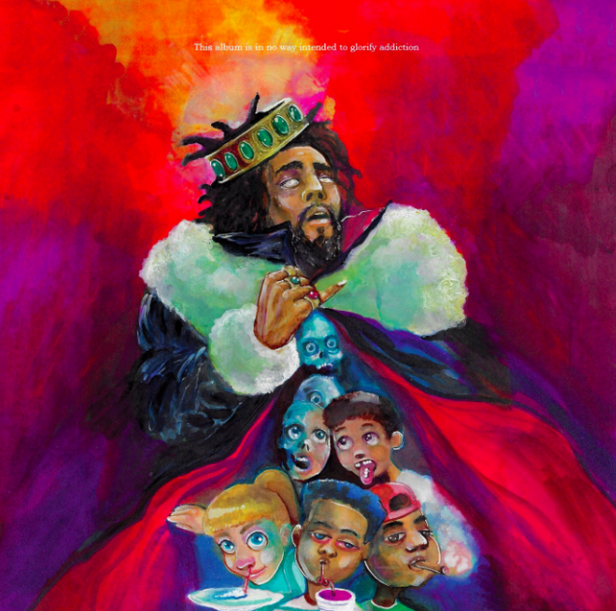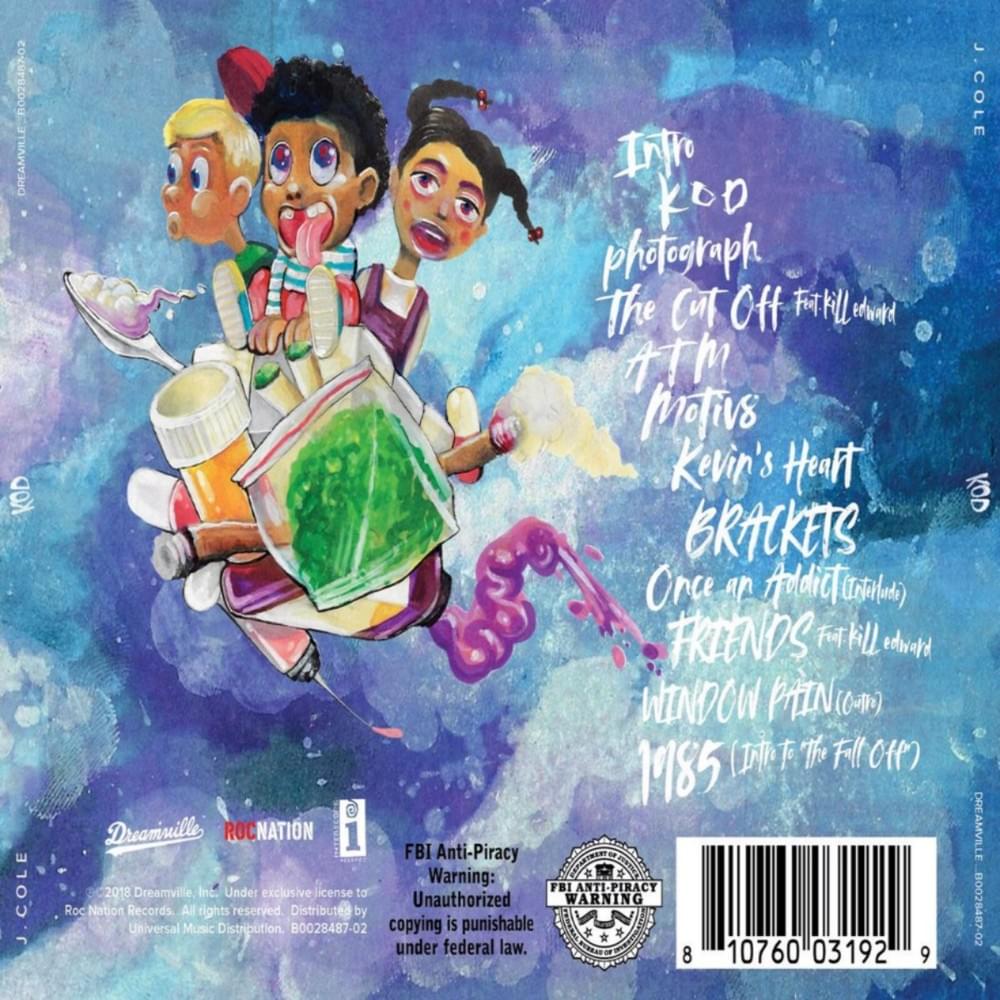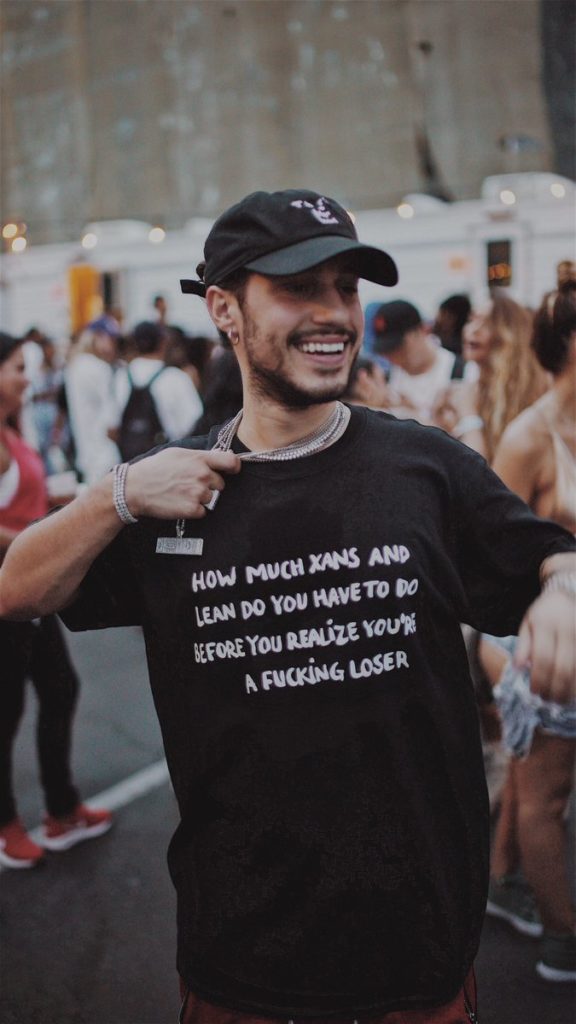Introduction

With the rise of the #MeToo movement, America’s culture of toxic masculinity entered into the public lexicon and has been under the microscope ever since. Toxic masculinity is a term that describes norms (such as violence, aggression, and lack of outward emotion) within masculinity that are seen as harmful. One of hip-hop’s biggest criticisms is that it celebrates and encourages a culture of misogyny and toxic masculinity within its lyrics. The goal of this project is to shed light on the many instances where hip-hop actually displays instances of masculine vulnerability.
“I never understood why, I could never see a man cry until I see a man die.”
-Scarface
Depression & Suicide
In 2017, Logic achieved mainstream success rapping about suicide in his hit song “1-800-273-8255.” His song was considered to be largely positive and uplifting with the chorus echoing: “I want you to be alive.” However, hip-hop’s perspective on suicide has often been neither positive nor uplifting. For instance, in “Suicidal Thoughts” Notorious B.I.G. raps: “I swear to God I want to just slit my wrists and end this bullsh*t / Throw the Magnum to my head, threaten to pull sh*t / And squeeze until the bed’s completely red.” Biggie’s depiction of suicide is much more macabre than Logic. However despite his darker tones, Biggie is not being vulnerable in his song. He continues to wear hip-hop’s misogynistic mask with one lyric claiming that he impregnated two sisters. Additionally, when he decides to kill himself in the song he portrays it as noble, rapping that he’s just “sick of talking” before a gunshot can be heard ending the song. When Biggie raps this, there is no angst or emotion in his voice. He continues to hold onto his cold, emotionless demeanor. In contrast with “Suicidal Thoughts” is Kendrick Lamar’s “u.” In “u,” Kendrick brings an authentic vulnerability to his lyrics. He raps about being on tour overseas while his friend died of complications from a drive-by shooting and reflects that “God himself will say you f*cking failed.” Lamar concludes the song rapping: “if I told your secrets / the world will know money won’t stop a suicidal weakness.” While Biggie kept his guard up, Kendrick reveals all his vulnerabilities and insecurities. The contrast is clearly evident in their vocals. While Biggie maintains a cool flow, throughout “u” Kendrick becomes increasingly uncontrolled, drunk, and ultimately suicidal.
Loss
There have been many rap songs about loss. The most notable include Geto Boys’ “Six Feet Deep,” Dr. Dre’s “The Message,” and Diddy’s “I’ll Be Missing You.” However, Tupac Shakur’s ballad “Life Goes On” was one of the greatest songs about loss ever written. Shakur was arguably the most vulnerable rapper ever. Despite rapping at the height of the gangsta rap era, Pac wasn’t afraid to get personal with his lyrics. Some of his most vulnerable songs including “Keep Ya Head Up,” “Changes,” and “Who Do U Believe In.” But on “Life Goes On,” Pac’s chorus haunts listeners as he sings: “How many brothers fell victim to the streets? / Rest in peace, young n*gga, there’s a heaven for a G / Be a lie If I told you that I never thought of death / My n*ggas, we the last ones left, but life goes on.” Producer Johnny J claims that when Tupac first revealed the song to his crew, everyone “broke down in tears.” Pac’s admittance that “it’s a lie if I told you that I never thought of death” contrasts with his daunting taunts in “Hit ‘Em Up” where he makes fun of his 1994 would-be assassin, rapping “Who shot me? But you punks didn’t finish.” Unfortunately, Shakur would later become a “victim of the streets” after he was murdered in a 1996 drive-by shooting but his impact and legacy within the genre has achieved immortality, as he is widely considered to be one of the greatest rappers of all time.
Homophobia
“The exact opposite word of hip-hop is gay.” – Kanye West
In a 2005 interview with MTV, Kanye West claimed that “the exact opposite word of hip-hop is gay.” West was not the only rapper to speak out on hip-hop’s homophobia. Macklemore raps in his hit single “Same Love,” that if he was gay hip-hop would hate him. This comes as no surprise since homophobia can easily be seen throughout hip-hop’s history. Boogie Down Productions’ “Ya Strugglin’” has lyrics where KRS-One raps: “Where oh where are all the real men / The feminine look seems to be the trend / You got eyeliner on, chilling and maxing / See you’re a man with a spine extraction / So what I’m asking is plain to see / Are there any straight singers in R&B?” Khujo derogatorily refers to gay people as “Sodomites” on Goodie Mob’s “Fly Away.” In another one of Khujo’s bars, he threatens to pull a “hollow point tip on gay rights activists.” However, by the 2010s hip-hop’s tune began to change. In 2012, “Same Love” dropped and Macklemore affirmed his support for LGBT rights when he rapped that marriage equality is “the same fight that led people to walk-outs and sit-ins / It’s human rights for everybody, there is no difference.” A year before Macklemore’s mainstream success, however, underground rapper Murs also voiced his support for gay rights in “Animal Style.” Additionally, Chance the Rapper’s verse on Instrumentality’s “Doctor Oz” shows his own vulnerability: “I want to be loved by my dad / But my dad said he can’t love no f*g / So I’mma have to hide who my real self is / And hide who I like but I can’t help it / Doctor Oz, can you make me not gay? / Make me normal and take this pain away.” It was later revealed that Chance’s verse was probably ghostwritten by his brother, Taylor Bennett, who is bisexual. Although the recent embrace of the LGBT community by hip-hop has not been without its critics (see Lord Jamar’s response to “Same Love”), a fair share of artists have come out in addition to Bennett including Tyler the Creator, Frank Ocean, and Kevin Abstract. Even Jay-Z, one of the godfathers of hip-hop, revealed that his mother came out to him as lesbian on “Smile.”
Addiction



There’s no shortage of drugs and addiction within hip-hop. However, substance abuse wasn’t always synonymous with rap. Between 1979-1984 only 11% of rap songs had lyrics with the mention of substances. In fact, one of Melle Mel’s most famous songs is his anti-drug PSA “White Lines (Don’t Do It).” Kool Moe Dee also wrote an anti-drug rap titled “Monster Crack.” By the 1990s, however, 69% of all rap lyrics contained references to drugs. 1990s drug references were first tied to marijuana usage. One of the first groups to embrace rapping about weed was Cypress Hill with tracks like “Stoned is the Way of the Walk” and “Light Another.” Other mainstream rappers like Dr. Dre and Snoop Dogg quickly followed suit. Later in the 2010s, songs like Future’s “56 Nights” and “Just Like Bruddas” bragged about xanax use. The late Juice WRLD rapped about his abuse of lean, a liquid mixture of Codeine, in his classic “Lean Wit Me.” However, after Juice’s overdose along with the drug-related deaths of Lil Peep and Mac Miller, there has been a noticeable shift within the genre. In 2017, Russ tweeted a photo of himself wearing a controversial t-shirt that divisively said: “How much xans and lean do you have to do before you realize you’re a f*cking loser?” A year later, J. Cole released KOD, arguably the first anti-drug rap album. J. Cole revealed that KOD stood for: “Kids on drugs, king overdosed, and kill our demons.” The tracks detail the problems that come with drug addiction and highlight a different side of a genre that is often associated with glorifying substances.
Misogyny

Similar to drugs, misogyny is very common within hip-hop. Famous examples of rap songs that perpetuate misogyny include Dr. Dre and Snoop Dogg’s “B*tches Ain’t Sh*t,” Jay-Z’s “Big Pimpin’,” and Eminem’s “So Much Better.” However, there are also quite a few rap songs that focus on deconstructing misogyny and advocate for women. Two tracks that advocate for women and disavow misogyny are Tupac’s “Brenda’s Got a Baby” and Kendrick Lamar’s “Keisha’s Song.” Both tracks follow a very similar theme and Kendrick’s whole song was actually inspired by Tupac. Tupac’s track narrates the story of Brenda, a young girl who is sexually molested by her cousin and conceives his child. After giving birth she throws the baby in the trash but changes her mind and becomes a prostitute to provide for her child. The final line in the song reveals that she is killed while on the job. Unfortunately, Brenda’s story is inspired by a New York Times article. Pac later stated that the song was big because “no male rappers at all anywhere were talking about problems that females were having.” Kendrick’s “Keisha’s Song” is a continuation of Brenda’s legacy and evenly directly quotes “Brenda’s Got a Baby” in a few sections. The end also follows similarly to Brenda’s story, as Keisha is “left for dead, raped in the streets.” One more track that is important to highlight is Lil Wayne’s “How to Love.” “How to Love” is a track that centers completely on a woman and her struggle to learn how to love. The music video narrates how the woman was raised in an abusive household, raped by her father, and then ends up as both a stripper and prostitute who later gets diagnosed HIV. However, after the woman is diagnosed the music video completely rewinds to an alternate reality where she was raised by both parents without being raped and instead of getting diagnosed with HIV, the woman finds out she is pregnant. Wayne is speaking out against domestic abuse, rape culture, and the impact that both have on future generations. Whether Tupac, Kendrick, or Wayne, all three artists call out misogyny and rape culture.
Conclusion
The truth is, rap really gets a bad wrap. Although hip-hop possesses a multitude of songs and artists that still glorify homophobia, misogyny, drugs, and a culture of violence, there are plenty of aspects of rap that don’t. Much of this legacy can be traced to the late 1990s / early 2000s with the success of artists like Snoop Dogg, Eminem, and 50 cent, who each took on (to some extent) a stereotypical rap persona. However, the rise of modern rappers like J. Cole and Kendrick Lamar has brought rap back to its roots as modern poetry. The power of this poetry can best be seen through example in the following two songs: Kendrick Lamar’s “Sing About Me, I’m Dying of Thirst” and Too Poetic’s verse on “One Life.”
In “Sing About Me, I’m Dying of Thirst,” Kendrick narrates the lives of Compton’s residents. In his first verse, Lamar raps about the cycle of violence with lyrics like: “A demon glued to my back whispering ‘get ‘em’ / I got ‘em and I ain’t give a f*ck / that same mentality I told my brother not to duck.” By the end of his first verse, the character he narrates as is suddenly killed off in a drive-by shooting during the middle of a lyric. In the second verse, Kendrick raps as Keisha’s sister (from Keisha’s Song). Keisha’s sister follows a similar trajectory as Keisha, gaining her income mainly through prostitution. Lamar raps from her perspective claiming that prostitution is just a way of life, but by the end of the verse Kendrick reveals that she fades away into what’s implied as a life controlled by a pimp. In his final verse, Kendrick defends rapping against cycles of violence and prostitution. The reason this is considered to be one of the most emotional rap songs of all time is because Kendrick is narrating the lives of real people. In a sense, “Sing About Me, I’m Dying of Thirst” works as a ballad about the souls that have been lost to the system and the Compton cycle. The title of the song itself works as a reference to the importance of singing to maintain the memory of those who have passed on.
While Kendrick’s song is a solemn ballad about Compton and the cycles that enable violence and oppression to continue, Too Poetic’s verse on “One Life” is completely personal. Too Poetic wrote his final verse in the last stages of his life after an ongoing battle with colon cancer. The song contains emotional lines like: “Feels like railroad spikes being stuck in my liver / Am I dying? Eyes crying, body starting to shiver.” However, rather than ending his verse with an emotional plea, Too Poetic gives gratitude for his life and friends with his final words claiming: “things could be worse.” Unfortunately, Too Poetic passed away only weeks after writing this verse. It is difficult to conceive anything more vulnerable than Too Poetic’s verse.
I mention these two songs because I think they are the most tangible examples of how rap can transcend its stereotype as a form of toxic masculinity. In their respective songs, Too Poetic and Kendrick not only grapple with their fears and vulnerabilities but enable their listeners to wrestle with their own emotions and look at life introspectively.
(lyrics from Kendrick Lamar’s “i”)